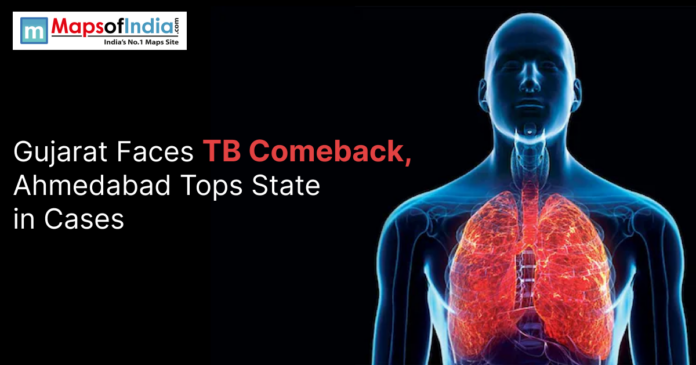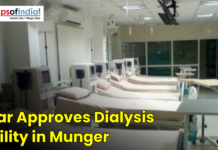The year has seen an alarming rate of reported tuberculosis (TB) cases in Gujarat, and official documents indicate that the state has close to 87,000 patients with the disease. Health authorities have verified that Ahmedabad has recorded the most cases, and this has raised an alarm due to the increasing spread of the infectious disease in cities. The unexpected increase in the number shows the seriousness of actions to be taken to enhance detection, treatment and community education to ensure that the state measures up to the national target of TB eradication by the year 2025 in India.
Tuberculosis is an infection caused by the Mycobacterium tuberculosis that mainly affects the lungs but may spread to other body organs in case of untimely treatment. Health experts cite a few causes of the spike, such as malnutrition, air pollution, overcrowding in urban areas and compromises the immunity of vulnerable populations. Another potential cause of the disease recurrence is post-COVID complications and lifestyle issues. The government has especially sounded alarms regarding the rise in the number of multidrug-resistant TB cases that are more difficult to treat and take longer to keep medically under care.
The city of Ahmedabad, the largest and most populated in Gujarat, is the epicentre of TB in the state. It is thought that the increased caseload is contributing to high migration, overcrowded settlements, and a lack of awareness of both symptoms and treatment options. Other cities like Surat and Vadodara are also registering huge figures, but the issue is not limited to cities only. A consistent increase in infections is also being reported in rural areas, with their problems of poor nutrition and limited access to health care.
The state health department has increased its efforts by increasing screening campaigns, activating mobile health units, and bolstering the Directly Observed Treatment Short-course (DOTS) centres to provide patients with access to timely medication. Government hospitals are offering free diagnostic services and rapid molecular tests to encourage early diagnosis. Officials have also strategized awareness campaigns in schools, villages and urban settlements to sensitize people about some common symptoms like persistent cough, pain in the chest, fever, weight loss and night sweats.
An increase in TB cases should be viewed as not only a challenge to the health of the population but also to the economy of the state because it has a direct impact on the productivity of the working population and the family income. Experts feel that the spread needs to be contained by paying more attention to nutrition, sanitation and early treatment. As India is already in a hurry to reach its goal of eliminating TB in the country by 2025, the outbreak of cases in Gujarat makes it clear that the cooperation between governmental and medical authorities and the population is urgent.










